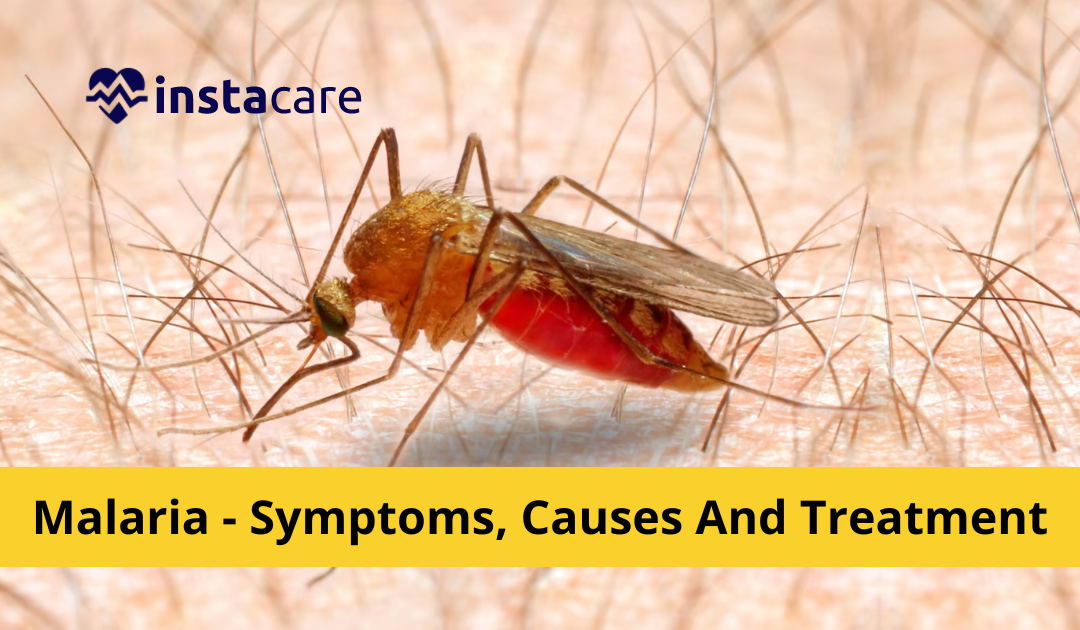When a mosquito bites you, it transmits the deadly parasitic disease known as malaria. The mosquito injects malaria parasites into your bloodstream when it bites you. Not a virus or a particular type of bacteria, but parasites is what actually causes malaria.
Malaria can result in serious health issues like seizures, brain damage, breathing difficulties, organ failure, and even death if it is not treated.
Malaria can affect anyone, but African residents are more likely to contract it than other people. Malaria increases the risk of death in pregnant women, young children, and older people. Complications from the disease are more likely to occur in people who are poor and lack access to healthcare.
What Causes Malaria?
A mosquito gets infected when it bites a person who has malaria. The parasite that mosquito carries enters the bloodstream of the person it bites which causes malaria. The parasites grow there. Humans can contract one of five different types of malaria parasites. In some instances, women who are pregnant and have malaria may pass the illness to their unborn children. Although unlikely, malaria can spread through hypodermic needles, organ transplants, and blood transfusions.
Signs And Symptoms Of Malaria
Malaria signs and symptoms are similar to flu symptoms. They consist of:
- Fever and perspiration
- Your entire body shakes with the chills.
- Muscle aches and headaches.
- Fatigue
- Cough, difficulty breathing, and chest pain.
- Vomiting, nausea, and diarrhea
- Anemia and jaundice can develop as malaria worsens (yellowing of the skin and whites of the eyes).
Cerebral malaria is the most severe type of the disease, which can lead to a coma. This category accounts for nearly 20% of deaths in adults and 15% of deaths in children.
When Do The Signs And Symptoms Of Malaria Start To Appear
When a person contracts malaria, symptoms typically start to show 10–30 days after infection. The severity of the symptoms can vary depending on the parasite type. Some people experience no symptoms for up to a year following a mosquito bite. Sometimes parasites can remain dormant in the body for years without showing any symptoms.
View More: Pneumonia Symptoms Treatment Causes and Prevention
Depending on the parasite, certain types of malaria can recur. The parasites are dormant in your liver for years before being released into your bloodstream. When the parasites start moving around, the symptoms start up again.
Malaria Is Detected In What Ways
Your doctor will examine you and enquire about your symptoms and prior travel experiences. In order for your provider to fully comprehend your risk, it is crucial that you disclose information about the recent countries you have visited.
To check for malaria parasites, your healthcare provider will draw a sample of your blood and send it to a lab. Your doctor will be able to determine whether you have malaria and what kind of parasite is to blame for your symptoms thanks to the blood test. This data will be used by your healthcare provider to choose the best course of action.
Precautions
Malaria does not have a vaccine. Precautions against malaria include avoiding mosquito bites. Insecticides and indoor sprays must be sprayed to reduce mosquito populations in order to stop malaria.
An efficient and non-intrusive method of precautions against malaria is by using mosquito nets. Even insecticide-treated mosquito nets are now available, which is a better preventative measure. Reduced open water drains and opens water stagnant pools can also help prevent malaria.
View More: Kidney Stones Causes Symptoms And Treatment
Treatment
Malaria can be treated by a specialist in infectious diseases or by your family doctor. The treatment for malaria must be thorough and must guarantee that the disease has been completely eradicated; otherwise, recurrence in less severe forms is a possibility. The following information is helpful in identifying the malarial disease.
- Recent travel experiences
- Fever
- Increased spleen
- Low platelet count
- High bilirubin levels and normal white blood cell counts
The treatment of malaria condition is treated with antimalarial medications. Oral medications can treat simple malaria. Artemisinins are used in conjunction with antimalarial medications like quinine, amodiaquine, lumefantrine, and sulfadoxine.
The anti-malaria medications are administered intravenously in cases of complicated malaria. Children with malaria are specifically monitored for blood potassium, respiratory distress, and blood sugar.
Conclusion
Anyone intending to travel to a region where malaria is prevalent should seek advice on the best antimalarial medications and other preventative measures. The patient needs to see their doctor, who will probably perform a malaria test, if they experience symptoms up to a year after traveling in an area that is affected.
Please book an appointment with the Best General Physician in Lahore, Karachi, Islamabad, and all major cities of Pakistan through InstaCare, or call our helpline at 03100002273 to find a verified doctor for your disease.
Source: https://instacare.pk/blog/malaria-causes-symptoms-and-treatment


